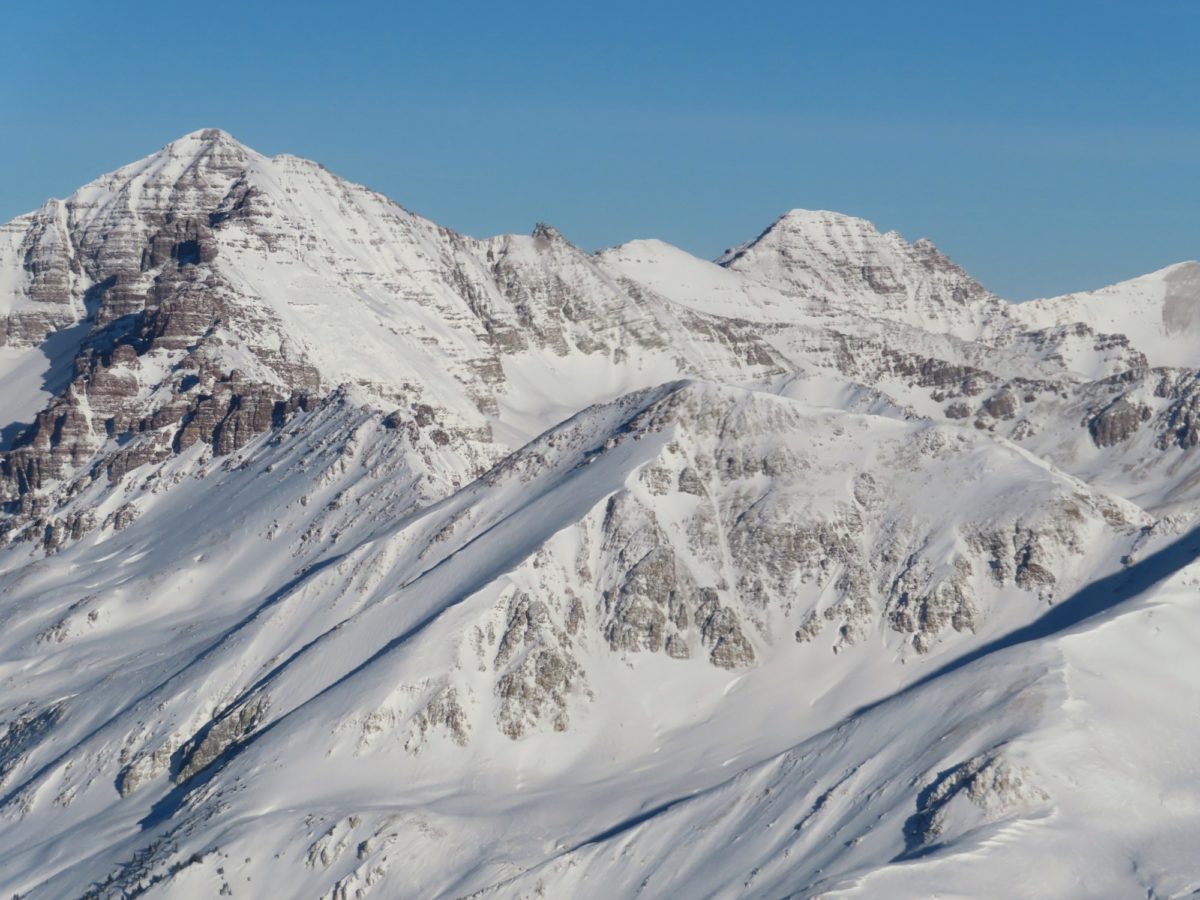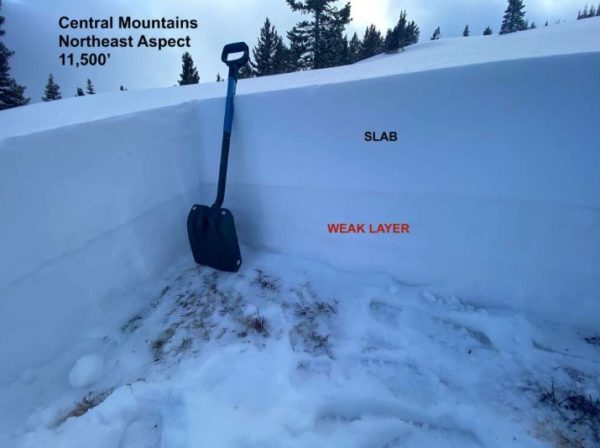Relatively cold and shallow snowpacks due to continental weather influences.
Continental snow climates are characterized by relatively cold temperatures, clear skies, and infrequent, low density snowfall. This often leads to a shallow snowpack characterized by weak, faceted snow layers which create a more fickle and unpredictable snowpack structure. Avalanche activity involves buried persistent weak layers and often peaks during a snow or wind event; however human-triggered avalanches are common long after a storm has passed. The Colorado Rockies are a good example of a Continental snow climate.

